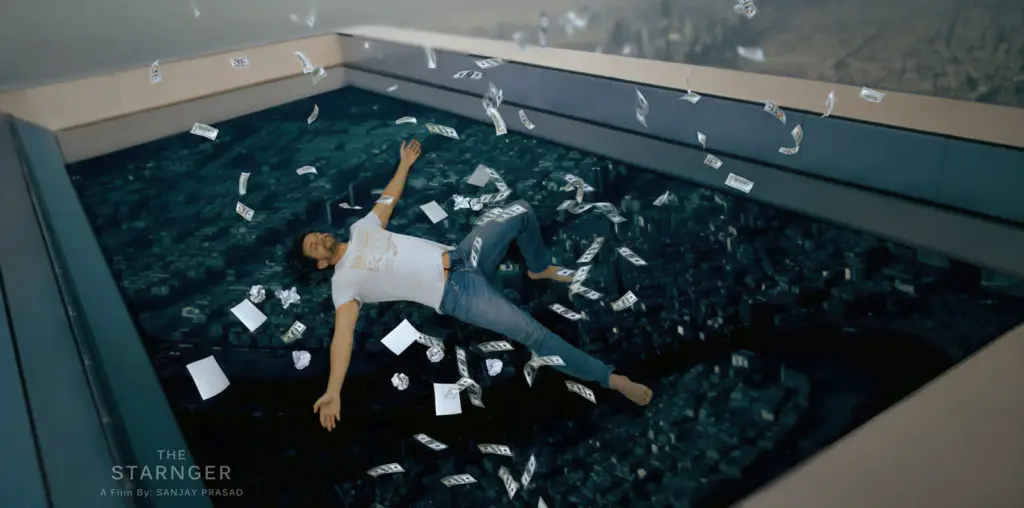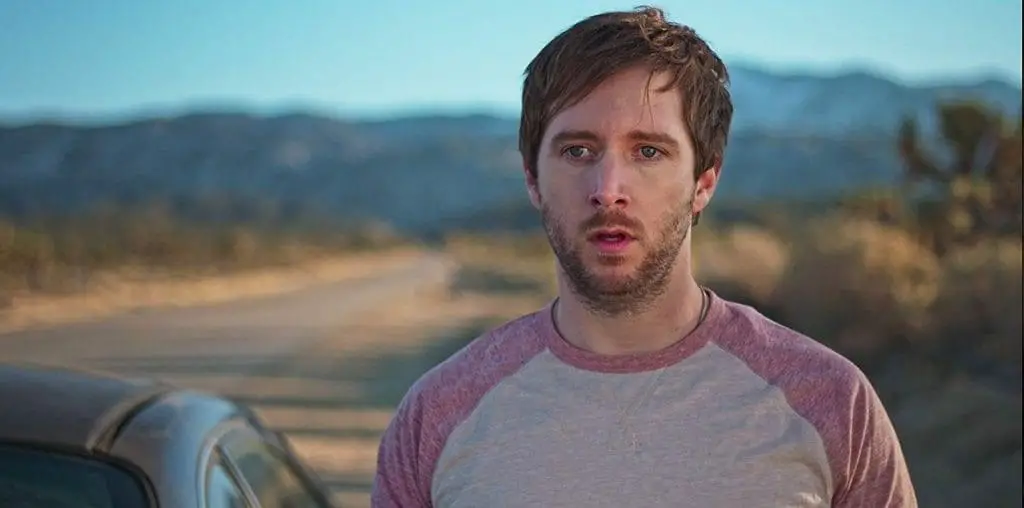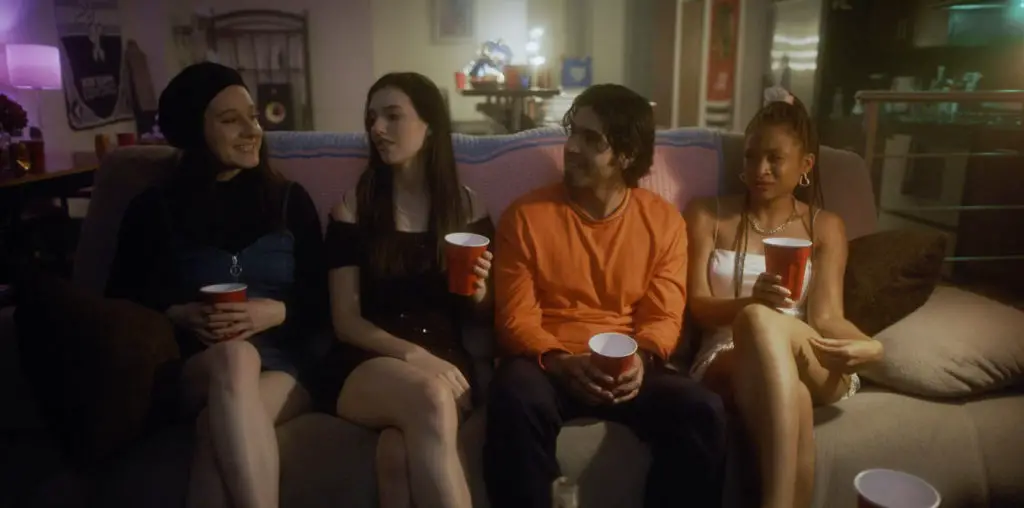
Last week “After Earth,” the newest film from writer/director/actor/punching bag M. Night Shyamalan, opened and, as is always the case for any Shyamalan movie since, oh say, 2003, it’s a cause for critics and fanboys to backslap each other over what a hack Manoj is as a filmmaker. The pieces written on “After Earth” that have been hitting the internet the past few weeks have varied levels of negativity including rankings of his worst (and best is thrown in because, something has to be least bad) films as well as those about what an egomaniacal douchebag the guy has become. Many also joyfully cackle at the fact that his name isn’t even being touted as the writer and director behind this new film. Hah! So awesome, failure. All this negativity has got me wondering, how did a once apparently great filmmaker, who many called the next Hitchcock or Spielberg, become such a target for hatred? The answer is simple: the same people climbing over one another to tear him down are the same people (or, of the same mindset, websites and newspapers) that built him up much, much too quickly.
If M. Night Shyamalan is an egomaniacal monster, hell-bent on ruining the cinematic experience, many fanboys, bloggers and film critics are the Dr. Frankenstein’s who created him. However unlike Dr. Frankenstein, these creators of a prematurely labeled auteur are also the torch bearing villagers who are unable to calmly assess the situation and their role in it. Instead the Internet is aflame in an angry, spiteful attack intent on storming the castle of M. Night Shyamalan. While I’ve never thought “After Earth” looked anything but pretty mediocre, I feel the attacks on Shyamalan are not only unfairly personal but also are falling into the unfortunate discourse that a movie either has to be totally amazing or it’s totally awful. Whatever happened to everything in between?
It all started in 1999 when a young director named M. Night Shyamalan exploded on the scene with “The Sixth Sense,” his third film. Seemingly coming from out of nowhere with this confident, sad and all together enthralling ghost story, the film was a rare case where film critics could champion a new voice in cinema and “the masses,” (ie; the ticket buying audience) agreed. Plus, the film had one of the greatest cinematic twists of all time and no one saw it coming. Yeah, yeah genius blogger or that dude on my Facebook feed embarking on the “M. Night has always sucked” bandwagon this week, we know you saw it coming. No one can slip one by you, buddy. But except for those very few, we were all one big happy family, chanting “M. Night!” “M. Night!” all the way to the box office.
Then, a mere year later, Shyamalan upped the ante with what is, in my opinion, not only his best work but also the best superhero movie ever made in “Unbreakable.” The Shyamalan/Bruce Willis mojo once again clicked and his sly way of revealing a plot-twist worked like magic as well. Here was a guy making movies for people who love movies and also roping in the average Joe and Jolene for the ride. He could do no wrong. Critics and fanboys were calling him the next Spielberg and the next Hitchcock, some even said he was our newest auteur. Everyone agreed these were apropos comparisons, especially M. Night Shyamalan. Then, in 2002 came “Signs.”
I like “Signs.” It’s a little triter and on-the-nose than Shyamalan’s previous two films but I don’t think it’s “a bad film.” It’s extremely well directed and there are some truly amazing scenes of emotional power which is a big part of what had made Shyamalan a success in his two popular films. However these moments just get overshadowed and overlooked by ‘THE TWISTS” that had begun to equally overshadow his solid directing chops. The casting of Mel Gibson and Joaquin Phoenix is outstanding as are their performances but, still, the critical approval of Shyamalan started to quiver a bit based almost solely on the lackluster plot twist in the film.
I feel the main issue with “Signs” was a subpar “reveal” in the story from a guy who built his reputation on gut-punching reveals. But the bigger reason the reveal in “Signs” flounders (aside from it being pretty dumb) is that we were all waiting for it. We counted the seconds, paid attention to clues and story structure and waited. When it happened, you saw it coming and the overall weakness of it mixed with the anticipation salted the wound of disappointment. But let’s be honest, with that level of anticipation, could “Signs” have had a twist or payoff that could meet audience expectations? I don’t think so. In fact the only way would be if there was no twist and that was the twist. Meta Night Shyamalan, for the win!
I’m a firm believer that the best films immerse you in their story and characters and take you over. When you enter a theater waiting for one moment of the story that’s supposed to knock you out as opposed to enjoying the entire filmic experience, it takes away from the movie as a whole. Plus, what you have to remember is that as Jerry Maguire said, “We live in a cynical world. A cynical world. And we work in a business of tough competitors.” It’s like people want popular artists (music, film, writers) to fail and can’t wait for it to happen so they can be FIRST (!) to say “Toldja!” when it happens. After “Signs,” the critical and fanboy torches were lit and the hunt was on to take down M. Night Shyamalan, the man ostensibly built up by critics and fanboys. If you think that last statement is unfair, follow me along to “The Village” and “Lady in the Water” land. But first, a slight detour.
Modern day film critics and bloggers suffer from many shortcomings and two of the most irksome are the foundation on which the hatred of M. Night Shyamalan is built. First, in the eyes and keypads of many modern day critics, every great new filmmaker has to be “the next ___________” (insert a master filmmaker here). The next Robert Altman is Paul Thomas Anderson (or is he the new Kubrick?), the next George Lucas is J.J. Abrams and Shyamalan was supposed to be the next Spielberg. I don’t know why my colleagues and fellow cinephiles are so set on having to have a major cinematic voice of our generation gain an immediate label, garner quick praise and solidify auteur status in their first few films. Directors who are talented have a “career,” if they don’t fall apart, and those careers should last many years and show the artist as a whole. There’s scarcely room for a filmmaker to grow in this current climate as every film is judged on a “pass” or “fail” mentality. Two or three films don’t add up to much, but they can be a good start.
The other issue is that modern day critics, bloggers and fanboys love (LOVE) to build people up so they can shred them apart later. It can be argued that as a society we love to do that, but I don’t feel like jumping into that arena and will stick with cinema. I contend that the same people who anointed Shyamalan as the next auteur (or whatever) have seemingly been trying to destroy the guy ever since and I don’t know why. There are far worse filmmakers and directors out there worthy of that hate and there are also bigger ego ridden a******s who continue to make films uninhibited by brutal, personal criticism. Why do these people get a pass but when Shyamalan comes out with a film, it’s like bullies messing with the lazy-eyed kid in third grade?
As far as bullying and negative critical response goes, I don’t have much to say about “The Village” except for that it suffered from the same twist-expectations-not-met death of “Signs.” But in my opinion, a little more fairly because while the film has some truly fantastic visual elements, the story is wonky and weak and the twist just seems tacked on. It’s by no means an unwatchable disaster but it’s also not all that great. But the critical shredding of “Lady in the Water” is clearly more of an attack on Shyamalan than of the film itself, unless I saw a different, better film. “Lady in the Water,” while by no means a masterpiece , is nowhere near as bad as many act like it is. It suffers from being overly maudlin and trying too hard to be whimsical but I think it’s a fine attempt at a modern day fairy tale. The film also doesn’t have a cynical bone in it’s body and that tends to rub people the wrong way for some reason, as noted above.
Critics and fanboys were so eager to rip Shyamalan to pieces for “Lady in the Water” they ignored the film itself and focused on two silly plot points that somehow make Shyamalan the worst filmmaker of all time. Those being: Shyamalan casting himself as a writer who is martyred into saving the world with his creativity as well as the “audacity” to have a film critic with the last name Farber in the film savaged and killed by a beast. Oh, the humanity! If film critics, bloggers and fanboys spent as much time analyzing allegory, semiotics, artistic intent and critical thinking with every film as they did with their cliff-notes study of “Lady in the Water,” we’d be talking a lot more about Ryan Gosling in “Place Beyond the Pines” than Gosling in “Drive.”
Basically, my point is who cares if Shyamalan killed off a film critic with the last name Farber. I absolutely refuse to believe that
A) Shyamalan had a bone to pick with critic Manny Farber and took it out on him in the film and that
B) the majority of young film critics and bloggers had any idea of Manny Farber and his work and were thus offended by Shyamalan’s decision.
If they knew of Farber they’d have a better understanding of “termite” and “white elephant” art and thus a better understanding of artists as a whole and my earlier complaint of everything having to be AWESOME or IT SUCKS would be moot but, I digress. I think the hatred of “Lady in the Water” comes from a bullying groupthink obsession with what a horrendous filmmaker and human being Shyamalan had become. Again, every film doesn’t have to be judged on a two-part scale of “amazing” or “horrible.” There’s plenty of room in the middle and that’s where over 90% of films fall, “Lady in the Water” included.
And look, I’m no Shyamalan apologist. I just don’t see where the genuine hatred of the guy comes from. He’s a filmmaker, not the leader of a child killing militia. He’s made great, good and bad films. Maybe I have more empathy than others because I’ve read Michael Bamberger’s book “The Man Who Heard Voices,” which is an incredible bio on Shyamalan and his struggles to make “Lady in the Water.” It paints a portrait of a guy who pushes hard to succeed and demands loyalty from those around him. He also has a creative passion that’s matched only by an amazingly fragile ego which, to me, makes him more human. It’s a great book and I recommend it to any fan of film.
I’m also maybe easier on Shyamalan because I’m not under any kind of torture regimen wherein I’m forced to see movies that look atrocious or even uninteresting to me. This is why I never bothered with “The Last Airbender.” It looked horrible and was based on a property that also didn’t interest me so I skipped it. What a novel idea! But I also don’t think it’s fair to a filmmaker (or, any artist) when a critic goes into his or her film expecting the worst, voicing that opinion on social media before the movie is seen and then performing a cacophonous jig alongside his (or her) fellow haters about what a piece of s**t film they just saw.
Critics, bloggers and fanboys built up M. Night Shyamalan and, obviously, he ate it up. But what’s he supposed to do with praise, adulation and the cover of Time magazine? Ignore it? Turn away from it? Ask Soderbergh how that’s going for him right now. Would a little more humility and less self-aggrandizing have helped Shyamalan? Absolutely. But who were the ones feeding him these lines and stoking his ego? It’s the same people who are shredding him this week on the internet.
In closing, if you don’t want to see “After Earth,” you don’t have to. If you’re just going to see it so you can wrap yourself in the warm blanket of negative groupthink wherein everyone tries to one-up each other with zingers on how bad the film is and then join hands to dance on the grave of the films box-office failure, knock yourself out. Just know you’re not only wasting your time and money but also contributing to the dissolution of intelligent cinematic discourse and, you’re also probably a jackass who needs attention.
Also, “The Happening” is one of the worst films ever.



There are directors who produce masterpiece after masterpiece over many years; and then there are directors who are hailed and lionised after making one or two undeniably-excellent movies — Martin Brest, Michael Cimino, Hal Hartley, Michael Lehmann — only to creatively fade away thereafter, for any number of reasons.
Now, making one or two undeniably-excellent movies still puts Shyamalan in a better category than many directors, but it’s time to accept that he belongs in the latter group and not the former.
Like most attacks on pop superstars, the harsh words aren’t necessarily to knock the “artist” down, but more to blast the fans. As if to say “Look! The guy/gal you worship isn’t so great!” or “Hey, I know what real art is, and you don’t!”
But, that said, I don’t think critics should go easy on Shyamalan, at all. It’s not like he’s some struggling artist, working on meager budgets. He’s a major motion picture director, who has big names in his movies, and megamillion dollar budgets. What I think people are reacting to is his lack of growth as a director and storyteller. He got everyone’s attention with a fantastic twist in Sixth Sense, and then crafted the (as you called it, and I agree) ultimate modern superhero flick. His major talent seemed to be the new master of the twist. But, his following films revealed that that was all he had in his magic bag — twists. The twist, like you pointed out, were now being sought after, and every other movie after Sixth Sense (and Usual Suspects) was incorporating the big twist endings.
Shymalan’s major flaw wasn’t that he relied much too heavily on the twist — which is fine — but that he could no longer craft a film that would make the audience forget that there would be a twist. His hero Hitchcock was able to do that, because he was a brilliant storyteller and filmmaker. Unfortunately, M. Night has proven that he was just once a good student, but has not grown into a brilliant filmmaker. He’s now just another director who makes mediocre films on huge budgets. And now that a trip to the movies has become a major dent in the paycheck, I think I have little problem with people objecting. No, they don’t need to be vindictive dicks about it, but I support the backlash of money wasters.
What a great article! Thanks for sharing.
Amen! I think Lady in the Water deserved more credit. I went in expecting a fairy tale, not a thriller with a twist, and was thoroughly pleased at how it delivered. There were even a few moments that brought me into that Goonies state of mind, where you suspend disbelief, lose your cynicism, and genuinely cheer for the ragtag team of heroes.